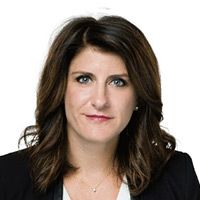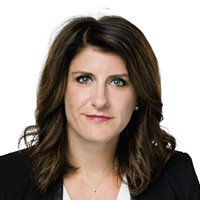Coronavirus Has Shown the True Value of Cash Reserves
Beyond peace of mind, having an emergency fund offers retirement savers a wealth of possibilities in times like these.

Profit and prosper with the best of Kiplinger's advice on investing, taxes, retirement, personal finance and much more. Delivered daily. Enter your email in the box and click Sign Me Up.
You are now subscribed
Your newsletter sign-up was successful
Want to add more newsletters?

Delivered daily
Kiplinger Today
Profit and prosper with the best of Kiplinger's advice on investing, taxes, retirement, personal finance and much more delivered daily. Smart money moves start here.

Sent five days a week
Kiplinger A Step Ahead
Get practical help to make better financial decisions in your everyday life, from spending to savings on top deals.

Delivered daily
Kiplinger Closing Bell
Get today's biggest financial and investing headlines delivered to your inbox every day the U.S. stock market is open.

Sent twice a week
Kiplinger Adviser Intel
Financial pros across the country share best practices and fresh tactics to preserve and grow your wealth.

Delivered weekly
Kiplinger Tax Tips
Trim your federal and state tax bills with practical tax-planning and tax-cutting strategies.

Sent twice a week
Kiplinger Retirement Tips
Your twice-a-week guide to planning and enjoying a financially secure and richly rewarding retirement

Sent bimonthly.
Kiplinger Adviser Angle
Insights for advisers, wealth managers and other financial professionals.

Sent twice a week
Kiplinger Investing Weekly
Your twice-a-week roundup of promising stocks, funds, companies and industries you should consider, ones you should avoid, and why.

Sent weekly for six weeks
Kiplinger Invest for Retirement
Your step-by-step six-part series on how to invest for retirement, from devising a successful strategy to exactly which investments to choose.
One of the hardest parts about being a financial planner is convincing people to do things they’d rather ignore.
When times are good, it’s easy for people to avoid putting in place strategies that create some short-term work and discomfort in exchange for long-term benefit and security. That’s why crises like the current pandemic can serve as a valuable wake-up call, taking our advice out of the realm of theory and making it very real.
Estate planning is the prime example. People generally don’t want to think about their own death so they tend to avoid the issue and delay putting a strategy in place for as long as possible. One of my clients had been sitting on his will and other estate-planning documents for over a year by the time the coronavirus came along. Spurred by the all-too-real health dangers of the outbreak, the paperwork was quickly executed.
From just $107.88 $24.99 for Kiplinger Personal Finance
Become a smarter, better informed investor. Subscribe from just $107.88 $24.99, plus get up to 4 Special Issues

Sign up for Kiplinger’s Free Newsletters
Profit and prosper with the best of expert advice on investing, taxes, retirement, personal finance and more - straight to your e-mail.
Profit and prosper with the best of expert advice - straight to your e-mail.
Emergency Funds to the Rescue
Convincing people to put aside an emergency fund worth at least six months’ of expenses can also be a tough sell in normal times, too. But COVID-19 is turning out to be a very effective test case for why it’s so important to have a cash reserve, both in terms of providing security and opportunity.
A decade of robust economic and jobs growth since the 2008 financial crisis had caused memories to fade and bred some complacency that the good times would continue forever. Suddenly, widespread job losses, combined with stock market plunges, have provided a visceral reminder of why building a cash cushion is such a simple but powerful strategy.
Having enough cash to make it through at least six months allows people to feel a much higher level of comfort at a time of job cuts, pay cuts, furloughs, and a generally uncertain outlook. It also avoids the need to dip into investment portfolios during a down market or, worse, take costly early withdrawals from pre-tax retirement funds. Sure, the pandemic is also easing restrictions on required minimum distributions and eliminating penalties for those who need cash fast, but even with those incentives it’s not as if most people want to tap into their 401(k).
Beyond Security, Extra Cash Also Holds Possibilities
That much is fairly obvious. Less well understood is how a healthy cash reserve also provides opportunities to gain during volatile times. Contrary to what might be expected, most of the conversations I have had with clients during the worst period of market falls leading up to the March 23rd bottom — or what counts as the bottom up until this point at least — weren’t prompted by panic.
Many of my clients had come into this year wanting to deploy cash into the market but were wary of going all in due to concerns that the markets were reaching all-time highs and a correction was overdue. As a result, we helped them develop dollar-cost averaging strategies over 12-18 months to reduce their vulnerability to a downturn.
When that downturn came — more brutal and sudden than anyone expected — many of those clients reached out to us with a positive attitude, sensing opportunities for immediate action. With the market around 35% off its February highs at one point, some of them wanted to front-load their strategy to put more of their cash reserves to work.
This isn’t about pushing a more aggressive strategy on any client — dollar-cost averaging isn’t for everyone, and neither is it necessary to suddenly revise a well-laid strategy simply because of a shift in the macro environment.
These changes were simply the result of check-ins with those who’d already identified dollar-cost averaging as a strategy to accommodate their risk tolerance and to reaffirm their comfort level with their investment strategy in light of the current circumstances. For financial advisers, big market corrections are an opportunity to truly gauge a client’s risk tolerance. A client who was stoic about the idea of a 25% portfolio loss during an investment policy discussion may now be losing sleep as it happens in real life.
In our experience, clients are mostly holding steady with their current strategies or increasing their stock holdings. Of course, although the S&P 500 index roared back nearly 30% since March 23rd, there’s no guarantee it won’t retest its lows and fall further in the coming months. But unlike in the depths of the 2008 financial crisis, people see a clearer end-game to the pandemic, even if there are difficult days ahead.
The Bottom Line on Cash Reserves
The advantage of having cash reserves at times like this is not about being able to time the market bottom, which is outside of everyone’s control. It’s about peace of mind and the flexibility to invest in a way that takes advantage of opportunities in line with your risk tolerance. Having cash on hand gives an additional element of malleability to build strategies around dollar-cost averaging, asset allocation and risk exposure.
Those are the things that are actually within our control during the moments when it feels like nothing else is.
Profit and prosper with the best of Kiplinger's advice on investing, taxes, retirement, personal finance and much more. Delivered daily. Enter your email in the box and click Sign Me Up.

Jaime Eckels, CFP, has been helping clients achieve their financial goals for 20 years and specializes in developing savings behaviors, implementing debt-reduction strategies, analyzing client cash flows, defining investment policy, determining portfolio allocations, minimizing income taxes and maximizing client balance sheets.
-
 Dow Adds 1,206 Points to Top 50,000: Stock Market Today
Dow Adds 1,206 Points to Top 50,000: Stock Market TodayThe S&P 500 and Nasdaq also had strong finishes to a volatile week, with beaten-down tech stocks outperforming.
-
 Ask the Tax Editor: Federal Income Tax Deductions
Ask the Tax Editor: Federal Income Tax DeductionsAsk the Editor In this week's Ask the Editor Q&A, Joy Taylor answers questions on federal income tax deductions
-
 States With No-Fault Car Insurance Laws (and How No-Fault Car Insurance Works)
States With No-Fault Car Insurance Laws (and How No-Fault Car Insurance Works)A breakdown of the confusing rules around no-fault car insurance in every state where it exists.
-
 For the 2% Club, the Guardrails Approach and the 4% Rule Do Not Work: Here's What Works Instead
For the 2% Club, the Guardrails Approach and the 4% Rule Do Not Work: Here's What Works InsteadFor retirees with a pension, traditional withdrawal rules could be too restrictive. You need a tailored income plan that is much more flexible and realistic.
-
 Retiring Next Year? Now Is the Time to Start Designing What Your Retirement Will Look Like
Retiring Next Year? Now Is the Time to Start Designing What Your Retirement Will Look LikeThis is when you should be shifting your focus from growing your portfolio to designing an income and tax strategy that aligns your resources with your purpose.
-
 I'm a Financial Planner: This Layered Approach for Your Retirement Money Can Help Lower Your Stress
I'm a Financial Planner: This Layered Approach for Your Retirement Money Can Help Lower Your StressTo be confident about retirement, consider building a safety net by dividing assets into distinct layers and establishing a regular review process. Here's how.
-
 The 4 Estate Planning Documents Every High-Net-Worth Family Needs (Not Just a Will)
The 4 Estate Planning Documents Every High-Net-Worth Family Needs (Not Just a Will)The key to successful estate planning for HNW families isn't just drafting these four documents, but ensuring they're current and immediately accessible.
-
 Love and Legacy: What Couples Rarely Talk About (But Should)
Love and Legacy: What Couples Rarely Talk About (But Should)Couples who talk openly about finances, including estate planning, are more likely to head into retirement joyfully. How can you get the conversation going?
-
 How to Get the Fair Value for Your Shares When You Are in the Minority Vote on a Sale of Substantially All Corporate Assets
How to Get the Fair Value for Your Shares When You Are in the Minority Vote on a Sale of Substantially All Corporate AssetsWhen a sale of substantially all corporate assets is approved by majority vote, shareholders on the losing side of the vote should understand their rights.
-
 How to Add a Pet Trust to Your Estate Plan: Don't Leave Your Best Friend to Chance
How to Add a Pet Trust to Your Estate Plan: Don't Leave Your Best Friend to ChanceAdding a pet trust to your estate plan can ensure your pets are properly looked after when you're no longer able to care for them. This is how to go about it.
-
 Want to Avoid Leaving Chaos in Your Wake? Don't Leave Behind an Outdated Estate Plan
Want to Avoid Leaving Chaos in Your Wake? Don't Leave Behind an Outdated Estate PlanAn outdated or incomplete estate plan could cause confusion for those handling your affairs at a difficult time. This guide highlights what to update and when.